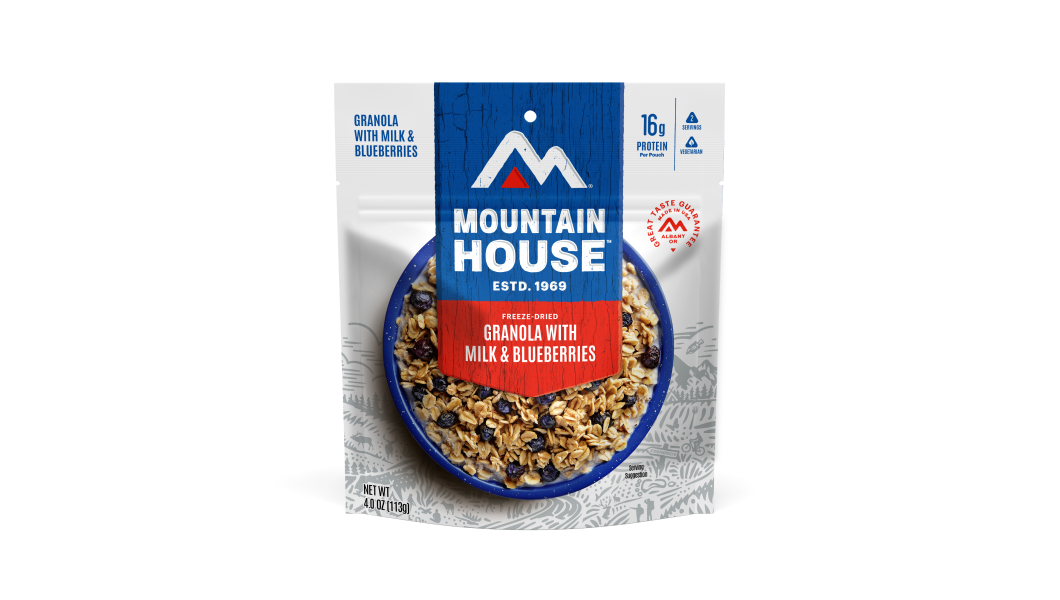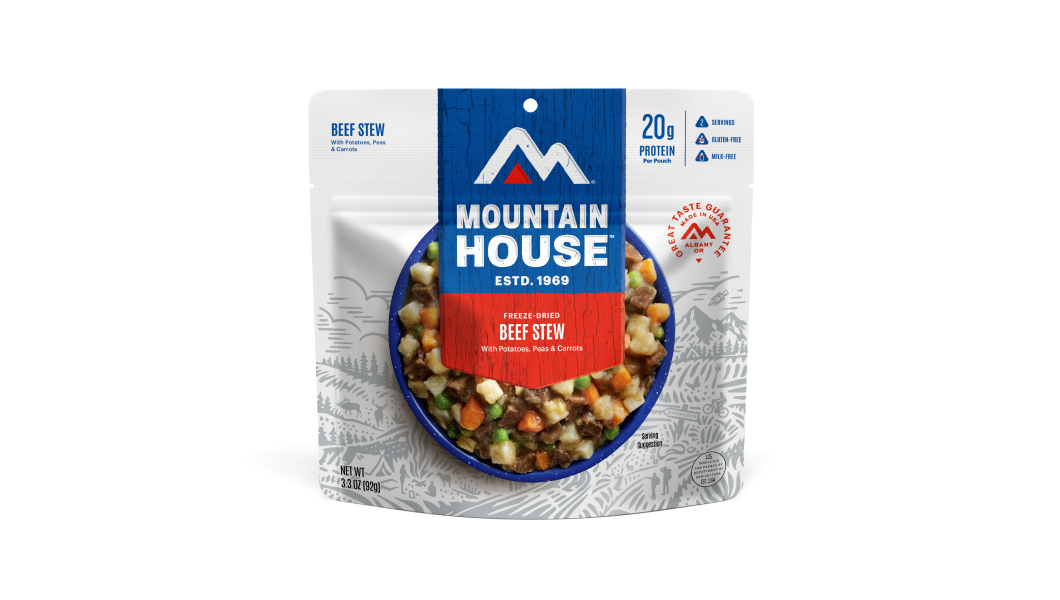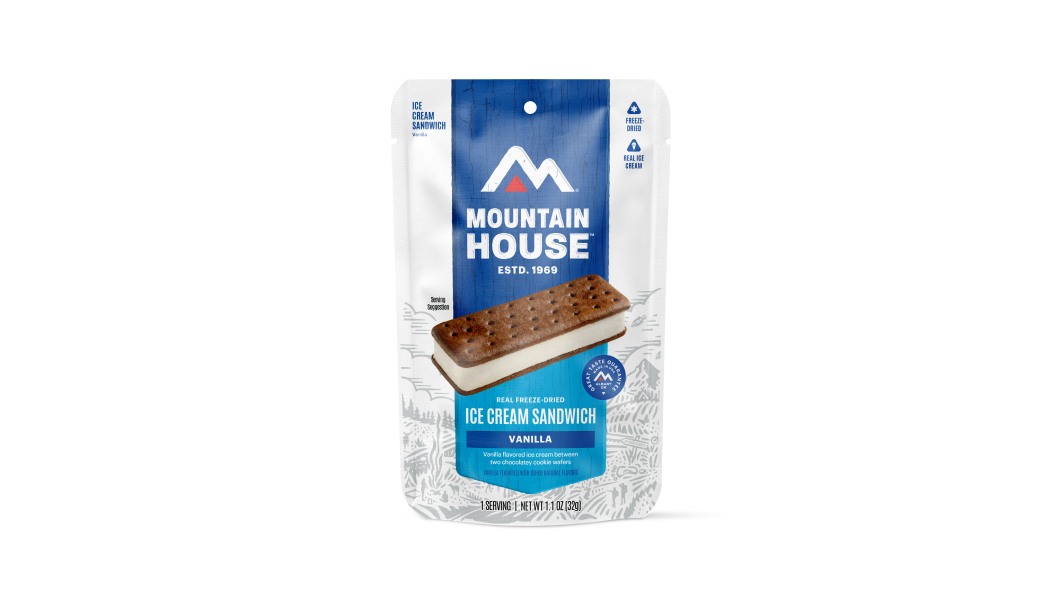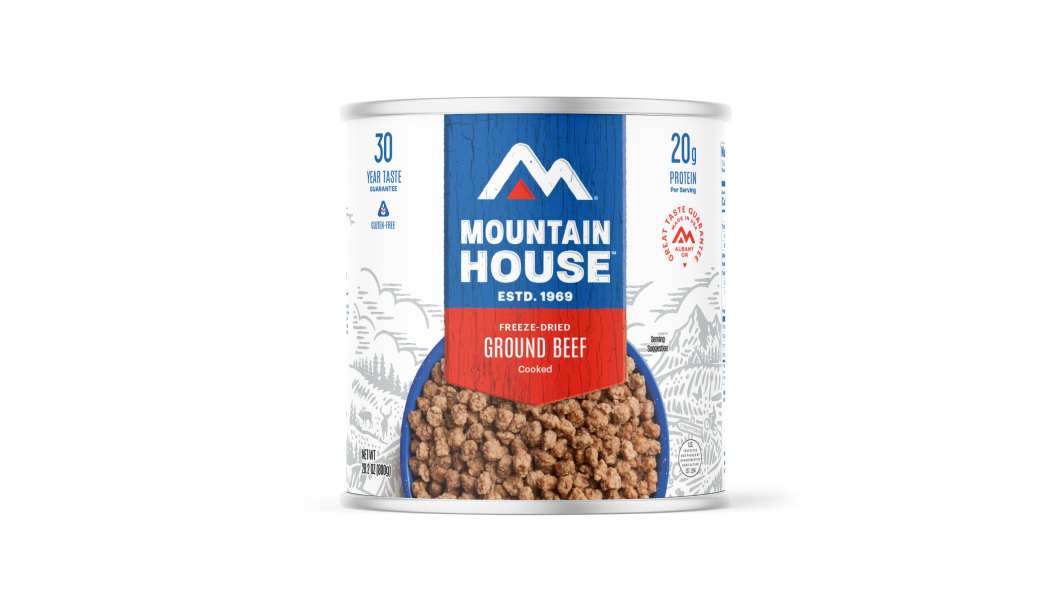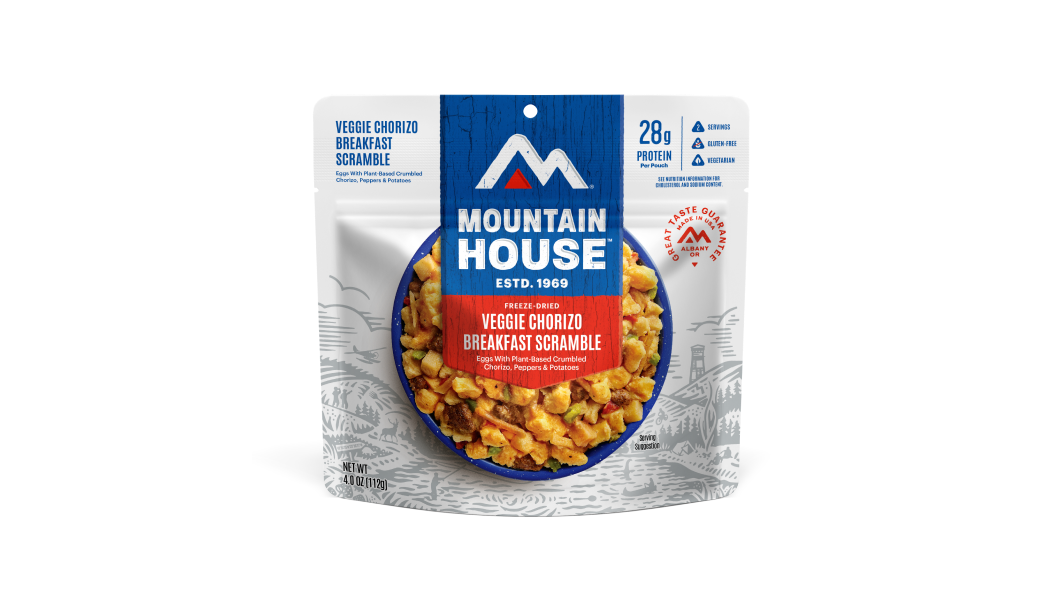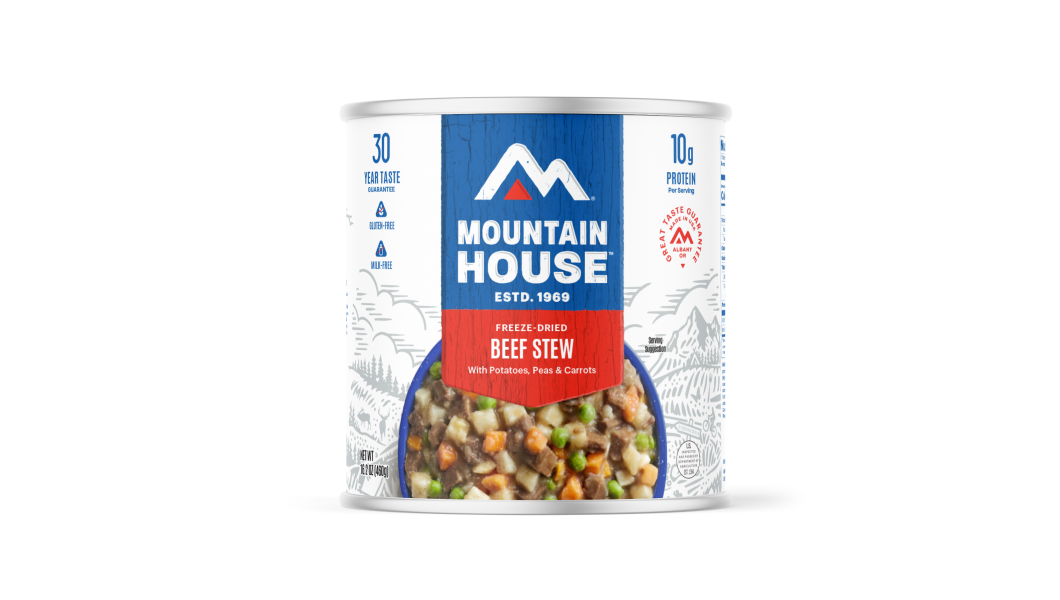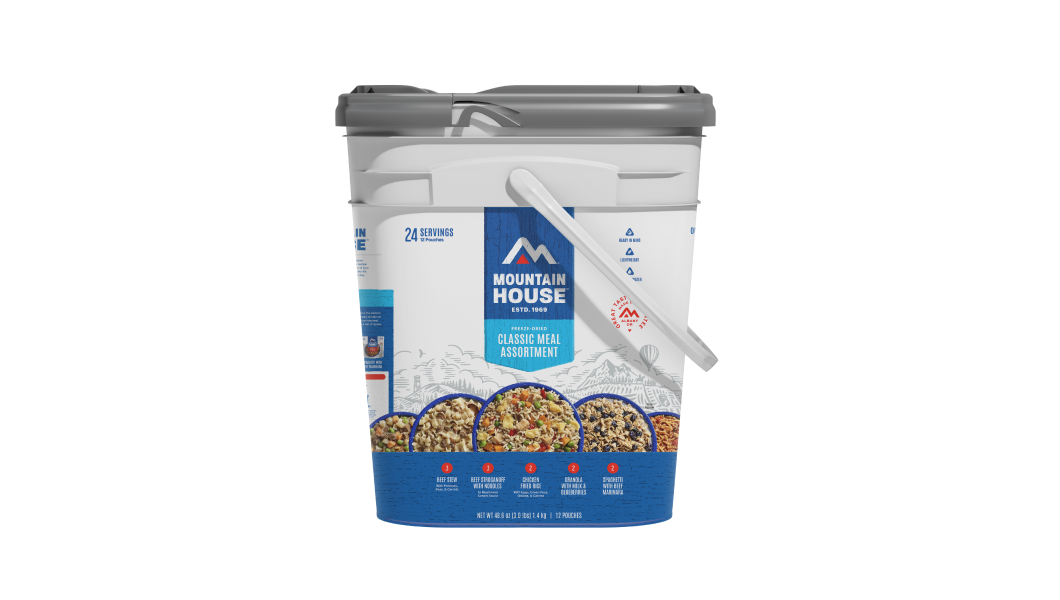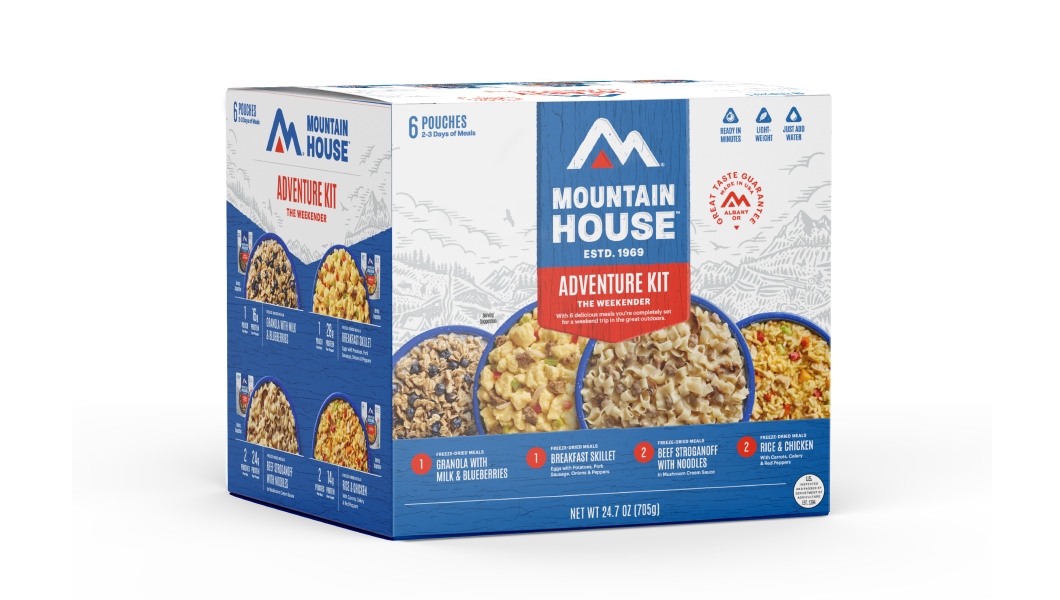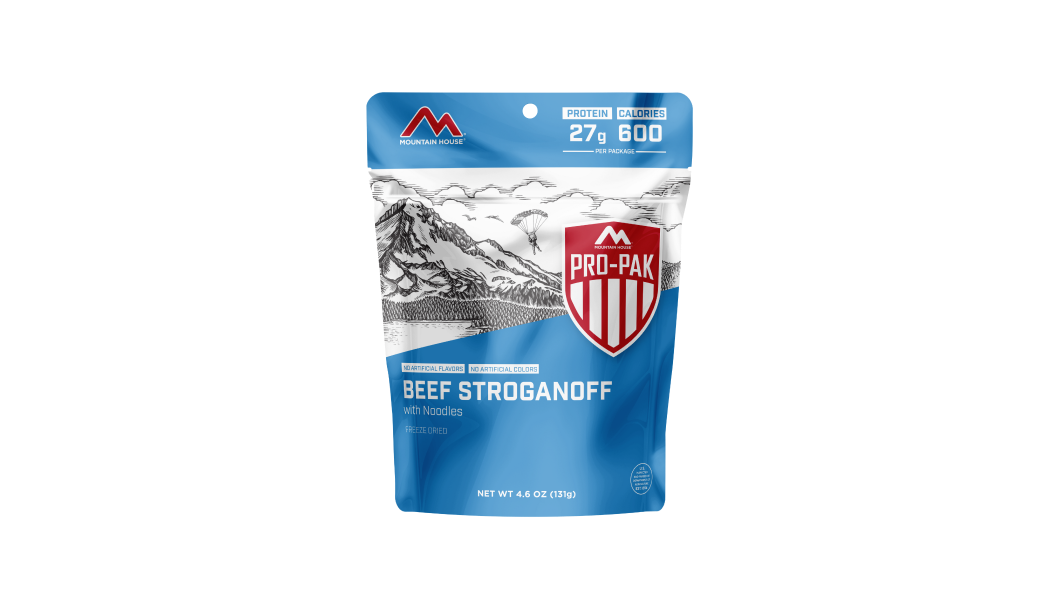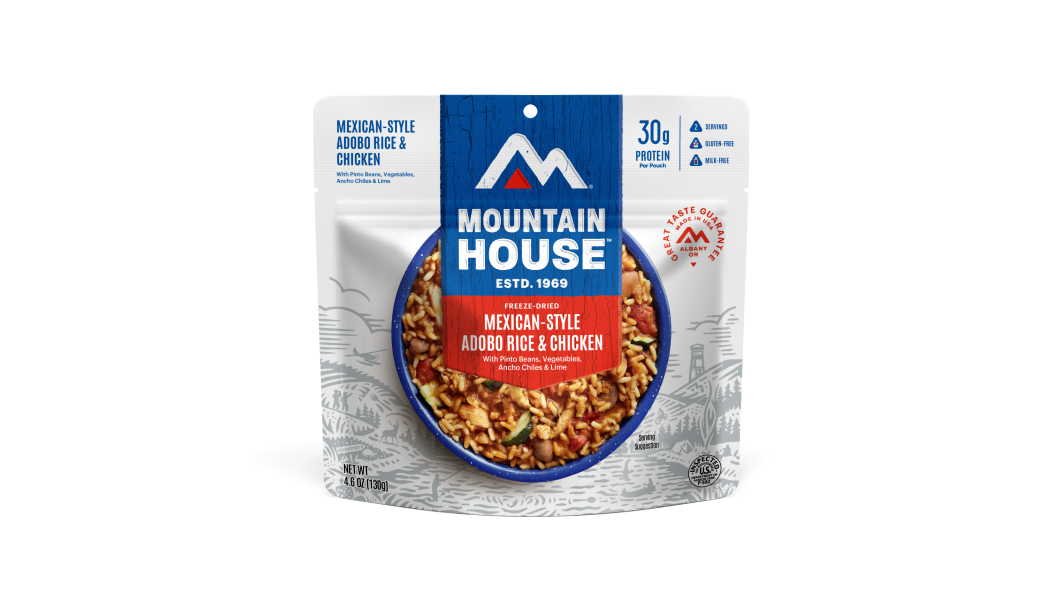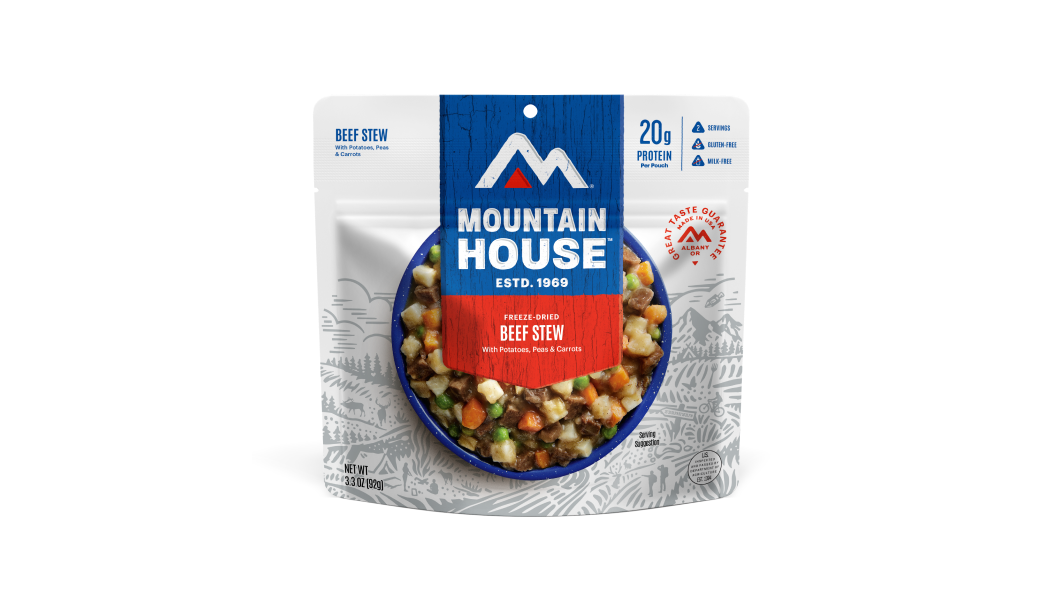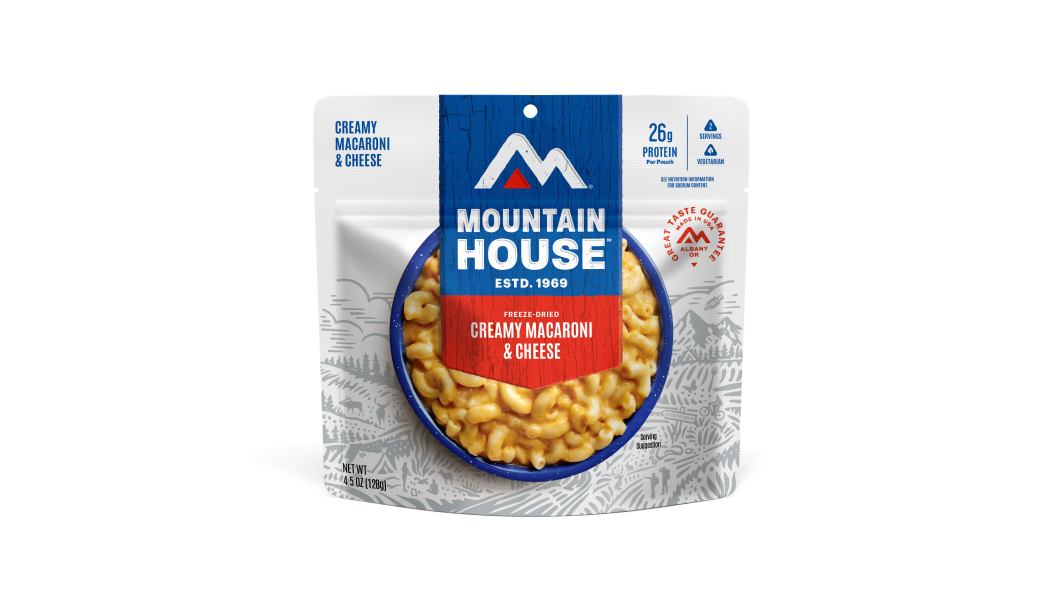Inspired for an Adventure? Check out Beef Stroganoff - Pouch and Beef Stew - Pouch
Add description, images, menus and links to your mega menu
A column with no settings can be used as a spacer
Link to your collections, sales and even external links
Add up to five columns
Add description, images, menus and links to your mega menu
A column with no settings can be used as a spacer
Link to your collections, sales and even external links
Add up to five columns
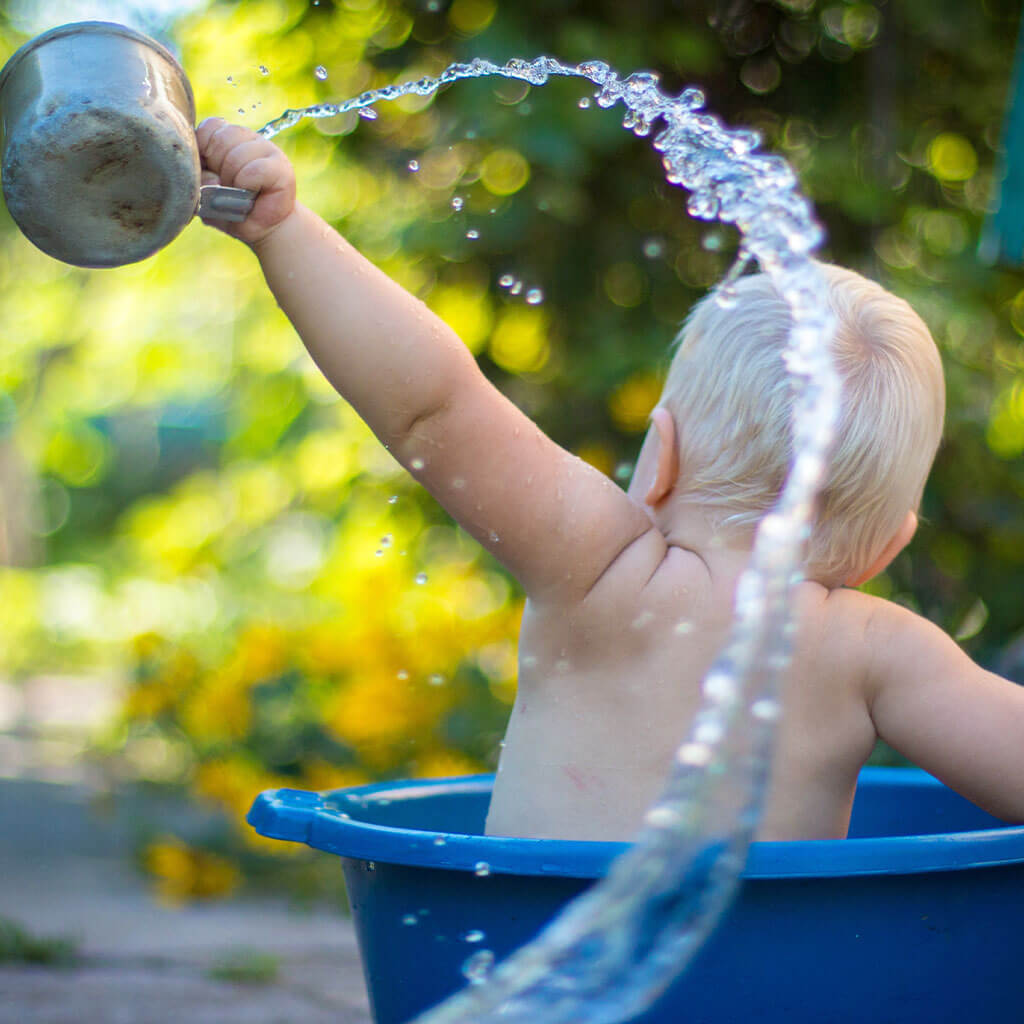

Does the notion of camping with babies strike cold fear into your heart? You’re not alone. Many parents of infants and toddlers assume the outdoor adventures Mom and Dad love are off-limits until the kids are older.
Not so. Don’t forget: People have been toting tiny babies around in the wilds for tens of thousands of years. Infants are hardier than they look, and the woods, prairies, and mountains are, from a certain perspective, an ancient, tried-and-true nursery.
Of course, camping with a baby does demand a lot of preparation, a different sort of equipment checklist, and—most importantly—a very healthy reserve of patience. You’re not likely to be following the same kind of camping or backpacking routine you did sans tyke: You’ll go slower, cover less ground, and quite possibly get a lot less sleep.
But the pleasures run deep. The intimate tempo and space that camping with babies creates can bring the landscape closer in focus than a bang-out-the-miles trek. And, of course, there’s the irreplaceable experience of introducing your little one to the natural wonders and outdoor activities so close to your heart.
So—how do you get started camping with young family in tow? Let’s run down a very basic baby camping checklist, which involves the same general kinds of supplies you need at home, just modified (or multiplied) for the wilds.
A "Camping With Babies" Checklist
Our "Camping with Babies" Checklist is a general checklist designed to ensure parents have all the essential items needed for a safe and comfortable outdoor experience with their infant but you will need to consider other special needs as well. Your checklist might includes baby-specific gear such as a portable crib, baby-safe insect repellent, and other gear, but here are what feel are essentials.
- Diapers
- Diaper Bags
- Washcloths, Wipes, Towels, etc.
- Camping-Friendly Baby Carriers
- Baby Camp Chairs & Playpens
- Food
- Bedding
- Clothes
- Sunscreen
- Wagon
- Baby Comforts
- Water Filter/Purifier
Diapers

You didn’t think we’d start off with anything else, did you? Cloth diapers are an admirable everyday choice, but many camping parents find disposables a bit more practical for campsite and trail purposes. Or check out hybrid diapers like gDiapers, that incorporate a reusable diaper cover and compostable inserts.
Diaper Bags

If you’re primitive camping or backpacking, you’ll definitely want sealable and waterproof bags for storing and packing out used diapers. Baby-toting backpackers should “bear” in mind (forgive us) what’s hopefully obvious: Used diapers should be kept at night properly stowed in a bear bag or canister.
Washcloths, Wipes, Towels, etc.

Keeping plenty of wipes, washcloths, rags, and towels on hand is just as important camping as it is back home. Infants and toddlers have a remarkable knack for getting messy all on their own, and then you throw in the dirt, mud, and sap of the wilderness.
Camping-Friendly Baby Carriers

Infant slings or wraps can be invaluable for the littlest campers. The rhythm of hiking or performing campsite tasks is often a nice and soothing one for a strapped-in baby. Once they’re a certain weight, you’ll probably want to shift babies into a backpack carrier: great for longer hikes, and also delivering the added benefit of keeping you in backpacking shape!
Baby Camp Chairs & Playpens
Plenty of camp tasks aren’t easy to do with a baby fastened to you, and a more mobile toddler obviously can get in lots of trouble crawling free at the campsite. You've got options, though. You’ll find numerous models of baby-size camp chairs on the market these days. You might also consider portable playpens to give your pint-sized charges some confined campsite wiggle-room.
Food

Breastfeeding infants make meal-planning for the camping trip pretty darn easy. Bottle-feeding is obviously more of a hassle. As this useful article in Mother suggests, you can cut down on mess and the chance of contamination by bringing along premixed formula bottles for trailside mealtimes. Depending on their dietary needs and preferences, toddlers may well enjoy whatever you're having in mashed-up form.
Bedding

Bring a goodly supply of blankets so your baby stays snuggly in the tent. You may have to play around with sleeping setups, and having plenty of bedding gives you more options. (Incidentally, it's a great idea to try tenting out with your infant in the backyard before a camping getaway: invaluable practice.)
Clothes
You’re going to need to do the thermoregulating for your infant on the camping trip, keeping in mind that he or she is more vulnerable to both cool and warm temperatures than you are. A warm hat is essential, as are plenty of layers—ideally synthetic or merino wool. Bring looser-fitting clothing for hotter conditions. Don't forget an infant sunhat for those bright and blazing days.
Sunscreen
And don't stop with the sunhat: Bring plenty of baby sunscreen along, as UV exposure's a real risk for an infant living outdoors for a few days.
Wagon
If you’re car camping, a wagon can be a mighty handy means of transport for setting up and breaking down the campsite. When you’re carrying a baby in a sling or backpack, a wagon makes it easier to haul supplies to and from the campsite. And of course you can (with the proper safety precautions) plop the baby in there instead for jaunts around the campground.
Baby Comforts

Part of the challenge of camping with babies is the unfamiliarity of the experience and the setting for them. Depending on their disposition, they may feel initially uncomfortable or downright frightened around the campsite or inside the tent. Or perhaps they’ll just be over-stimulated by the experience: restless and unwilling to settle down for naptime or bedtime. It therefore helps to have some familiar elements from the home realm on hand for comfort purposes. Include in your baby camping gear some favorite toys or stuffed animals, a cherished blanket, or whatever random object the little one’s inexplicably attached to. When you’re confronted with a crying episode or simply a wiggly, squirmy, jacked-up tyke, these touchstones can be invaluable calming aids. Speaking of toys, you may be tempted to haul a whole toy chest's worth of them, but remember that the great outdoors is naturally engrossing for a baby: dappled light, breezes in the treetops, woodpecker hammerings, squirrel flybys, babbling brooks—all that good stuff. Your infant is likely to be plenty occupied with the sights and sounds of Nature and maybe a little less interested in playthings from back home.
Water Filter/Purifier

In primitive camping situations, you definitely want to have a high-quality water filter or purifier on hand. Along with boiling, these tools help you sterilize the water you’ll need for washing and cleaning your baby. Waterborne pathogens are nothing to play around with.
The hardest part of camping with babies is taking that courageous first step and doing it. You’ll inevitably have mishaps and messes, but with the right mindset going in there’s a good chance things will actually go smoother than your expectations. And you’ll come away with a million ideas for fine-tuning your baby camping checklist for the next time out!
For some final inspiration, let’s turn to ecologist Rebecca P.M. Means, who with her husband Ryan Means explore the country’s most far flung sites through Project Remote. Their daughter Skyla has been part of this adventure from the start, so the Meanses have plenty of experience in backcountry baby care. Here are some pertinent words of wisdom Rebecca offered New Beginnings a few years back:
The physical aspects of camping with a small child are not always that hard; it’s your frame of mind that matters. Being outside is different than being at home and camping with children is different than without children. Don’t try to make it the same. Accept and embrace what it is, at that moment. Be realistic in your expectations of what you (and they) can do, and you will have a much more enjoyable experience.
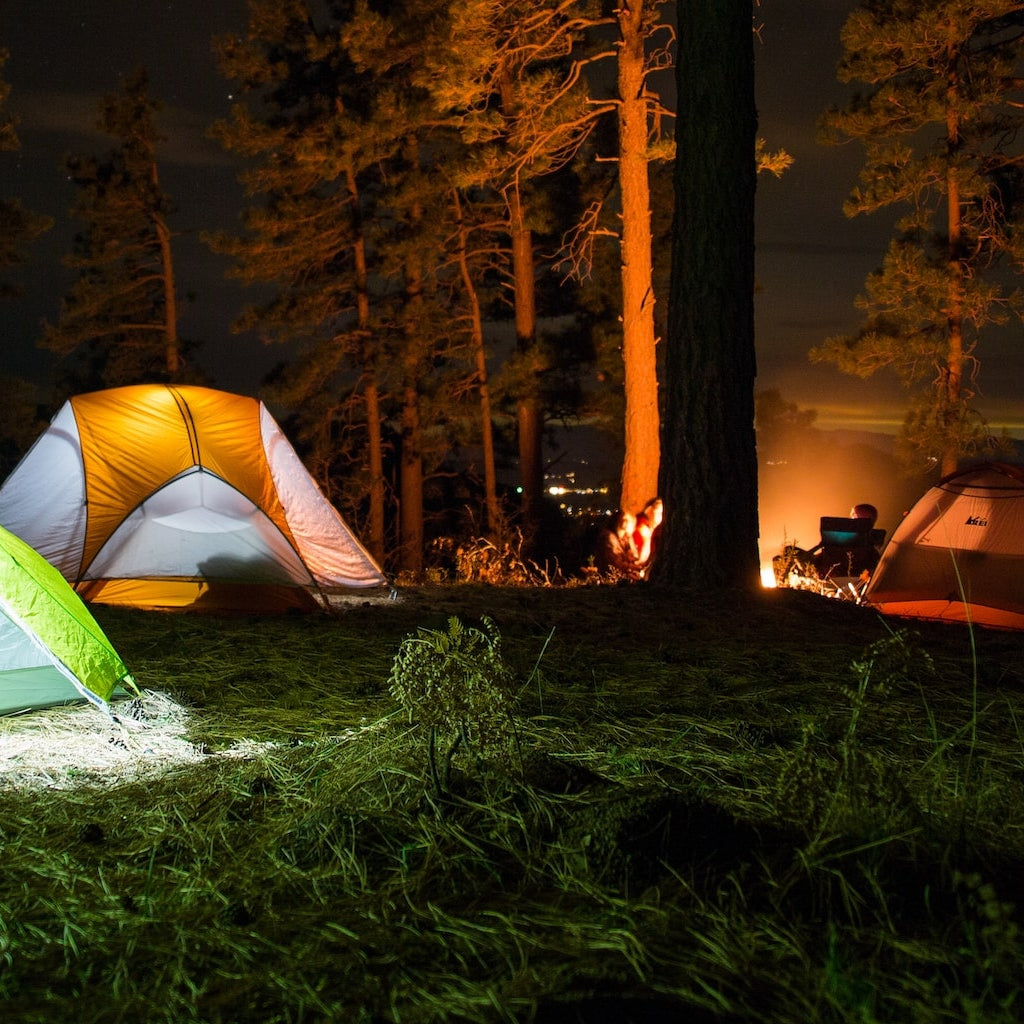
Lazy Camping Food: Simple Meals for Large Groups
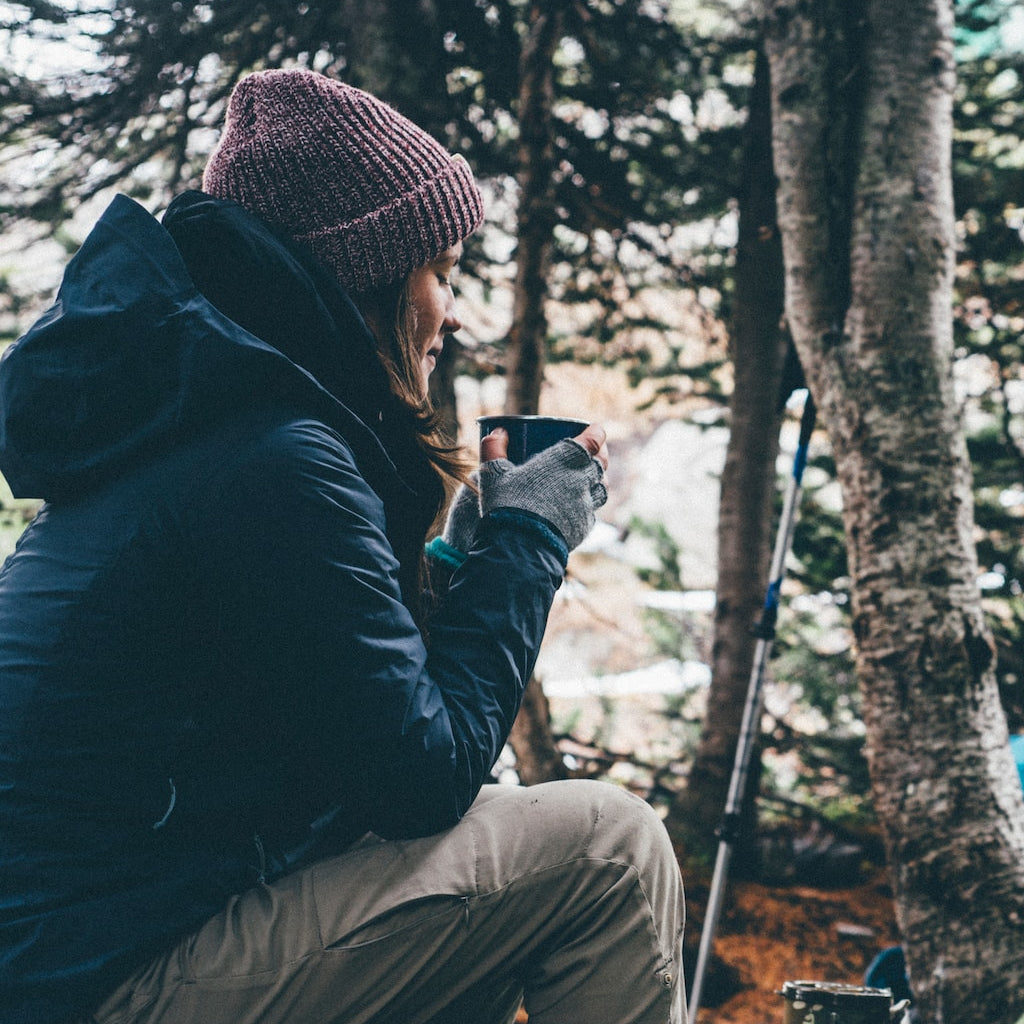
Tasty Camping Food Ideas With No Refrigeration Required
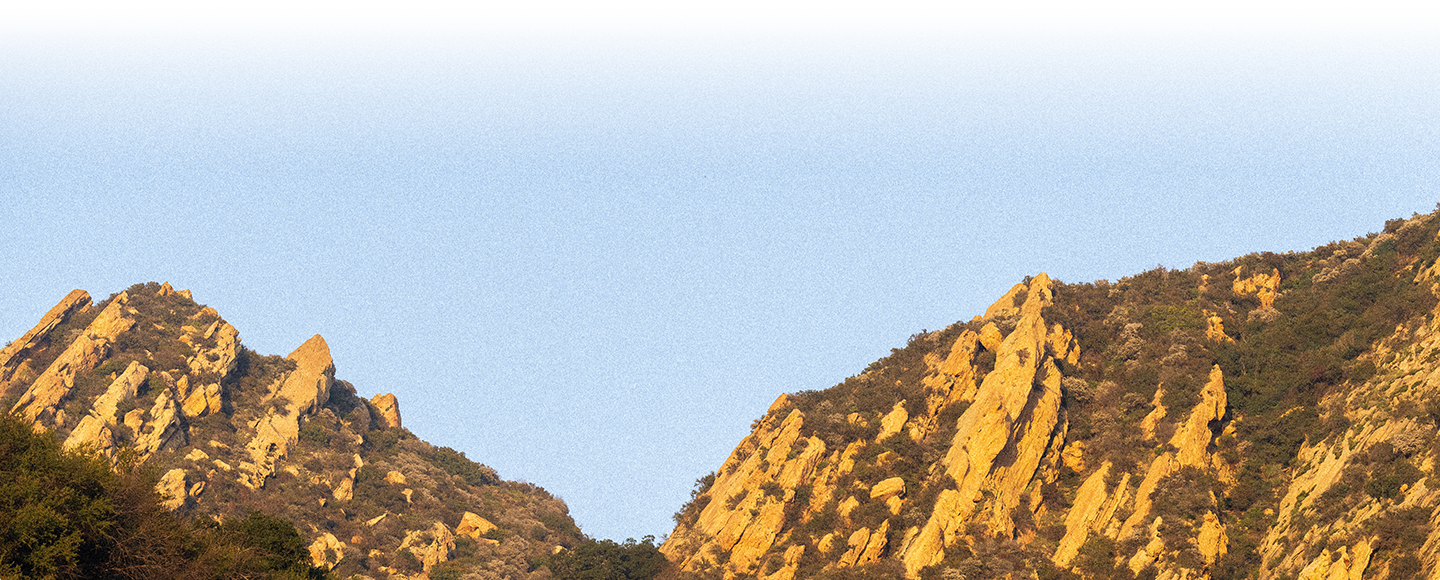
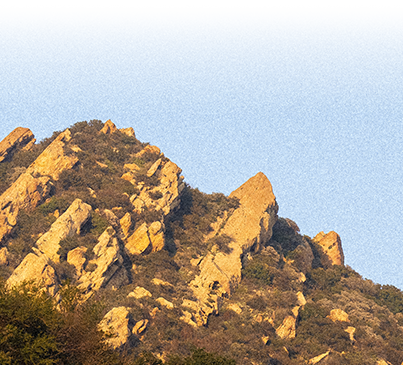
Stay Hungry for Adventure
Sign Up for Delicious Outdoor Meals & Exclusive Offers!
By clicking ‘Join Now’, I agree to the Terms of Service and Privacy Policy.


Join the adventure
©2025 Mountain House — All Rights Reserved.
Your Cart is Empty
Continue ShoppingYour Cart
Subtotal
$0.00
EXPRESS PAYMENT METHODS AVAILABLE IN CHECKOUT
Taxes and Shipping Calculated at Checkout
Your ExpertVoice deal.
$[Deal Price]
$[Original Price]
Discount applied at checkout.
On sale now — lower than your ExpertVoice discount.
Not eligible for ExpertVoice discount.
